The Essential Guide series brings together the best recent coverage from New Scientist specially curated into beautiful compendiums about the most exciting themes in science and technology today. Written and edited by some of the world’s best science writers, these guides will leave you with everything you need to know about subjects from nutrition to the solar system and more.
HUMAN SOCIETY
New Scientist - The Essential Guides
THE RISE OF CIVILISATION
HOMO SAPIENS: THE FIRST DOMESTICATED SPECIES • A remarkable ability to cooperate underlies human society. A bold hypothesis suggests that has one ultimate source – early traits we evolved allowed us to tame our wilder sides.
HIERARCHY AND THE FIRST CIVILISATIONS • Cooperation was essential for civilisation to emerge, but it wasn’t enough. There is a limit to the number of people we can meaningfully know and cooperate with – a fundamental cognitive limit that required another key innovation to overcome.
MONUMENTS TO COOPERATION
WHY RELIGION MATTERS • Its role in human affairs today may be hotly debated, but what isn’t in question is religion’s key role in establishing civilisation, says Harvey Whitehouse
THE ORIGINS OF CULTURAL DIVERSITY • While human societies have universal traits in common, built on our ability to cooperate, there exist wide differences also. Where those differences come from is one of the most intriguing questions of our cultural evolution.
THE HUMAN FACTOR
HOW CULTURE SHAPES OUR MINDS • The norms of the society we live in have a huge influence on our psychology, motivations and decision making, says Joe Henrich
HAPPY FAMILIES? • Nothing divides human societies – or indeed individual opinions – quite like our attitudes towards sexual and familial relationships. But the cultural norms in these areas often have relatively recent origins, and examining them from a purely scientific standpoint often undercuts their validity.
WINNING FRIENDS (AND INFLUENCING PEOPLE) • The cooperative nature of human society creates networks of supporting social relations beyond mere family. These friendship networks are created and maintained in surprisingly uniform ways – and are absolutely crucial not just to our practical, but also to our mental, well-being.
SEVEN PILLARS OF FRIENDSHIP
SIGNALS OF ENGAGEMENT • The paramount nature of trust and cooperation in human society generates complex rules of engagement. We might not be aware of them, but they come into play from the moment we meet someone.
THE IMPORTANCE OF SAYING SORRY
EMPATHY’S DARK SIDE
WHY RATIONALITY RULES • As fake news and conspiracy theories abound, it can seem societies are falling apart as a result of unfounded biases. But in fact we remain a supremely rational species, says Steven Pinker
NEW SCIENTIST ESSENTIAL GUIDES
MORALITY AND RELIGION
THE ROOTS OF MORALITY • For most of our 300,000 years on the planet, Homo sapiens lived in small groups, and it is here that our moral code was forged – for good and all
EVERYDAY EVIL • Evil lurks in all of us beneath a civilised veneer. That was the apparent lesson of a controversial experiment carried out half a century ago – but it might not have been all it seemed.
HUMAN RIGHTS – AND WRONGS • The concept of human rights has come to define many moral questions in today’s world – but what that means depends on how we define humanity, says John H. Evans
WHY WE BELIEVE IN GODS • Almost everybody who has ever lived has believed in some kind of deity. Even today, atheism remains a minority pursuit requiring hard intellectual graft, and committed atheists easily fall prey to supernatural ideas. Religious belief, in contrast, appears to be intuitive.
DID PROTESTANTISM CREATE SCIENCE?
RELIGION...
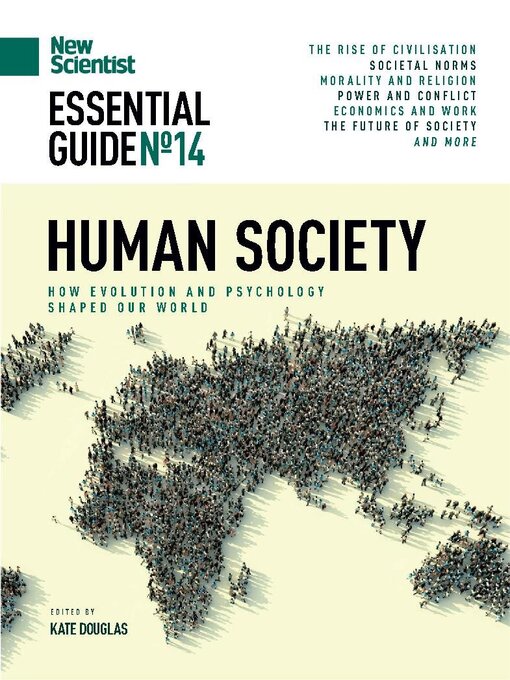
 EG25
EG25
 EG24
EG24
 EG23
EG23
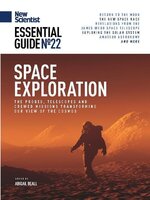 EG22
EG22
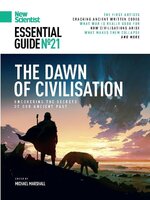 EG21
EG21
 EG20
EG20
 EG19
EG19
 EG18
EG18
 EG17
EG17
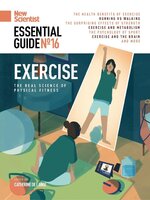 EG16
EG16
 EG15
EG15
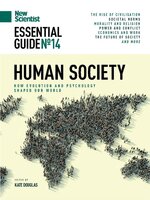 EG14
EG14